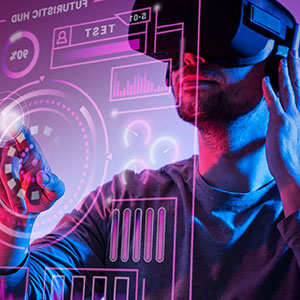The Impact of Artificial Intelligence on Consumer Lives
Artificial Intelligence (AI) is rapidly transforming the world around us, influencing various aspects of our daily lives and reshaping consumer experiences. With over 40% of consumers believing that AI enhances their lives in some way, this technology is poised to revolutionize how we interact with our environment, respond to our thoughts, and automate tasks with unprecedented efficiency.
Understanding Artificial Intelligence
AI, at its core, involves machines and systems designed to mimic human intelligence and perform tasks that typically require human cognition. From simple algorithms to complex neural networks, AI encompasses a wide range of applications including machine learning, natural language processing, and robotics, offering solutions to real-world problems across industries.
AI in Daily Life: An Overview
Every day, AI technologies like smart home devices and personal assistants such as Amazon’s Alexa or Google Home make our lives more convenient by automating routine tasks, offering hands-free help, and providing personalized services based on our preferences and behaviors.
How AI Enhances Consumer Experiences
In the realm of shopping and customer service, AI delivers personalized recommendations and support, transforming how consumers discover products and interact with brands. Through data analysis, AI tailors experiences to individual needs, enhancing satisfaction and loyalty.
AI in Healthcare
Healthcare has seen significant advancements thanks to AI, from predictive analytics that forecast health issues before they arise to robotic assistance in surgical procedures, improving outcomes and patient care.
AI in Finance
AI’s role in finance includes detecting fraudulent activities and offering bespoke financial advice, ensuring security and personalization in financial services.
AI in Education
In education, AI facilitates personalized learning paths and automates administrative tasks, allowing for more efficient teaching methods and operations.
Ethical Considerations in AI
As AI becomes more integrated into daily life, ethical issues such as data privacy and algorithmic bias emerge, highlighting the need for careful consideration in AI development and deployment.
The Future of AI: Integration with Human Thought
Futuristic AI technologies, including brain-computer interfaces, promise a world where humans can control environments and interact with devices through thought alone, offering a glimpse into the potential of fully immersive AI integration.
Challenges Facing AI Adoption
Despite its benefits, AI faces challenges like technical limitations and public skepticism, which must be addressed to fully realize its potential in consumer lives.
Consumer Trust in AI
Building consumer trust in AI systems is crucial for widespread adoption. Efforts to ensure transparency, reliability, and security in AI technologies are key to fostering confidence among users.
The Role of AI in Sustainability
AI also plays a significant role in promoting sustainability through environmental protection efforts and advancements in smart agriculture, demonstrating its potential to contribute to global challenges.
AI in Entertainment
In entertainment, AI enables personalized content creation and immersive virtual reality experiences, offering new ways for consumers to engage with media.
Public Perception of AI
Surveys and studies reveal a generally positive perception of AI among consumers, attributed to its ability to improve convenience, efficiency, and quality of life.
AI and Job Transformation
While AI introduces changes in the job market, it also creates new opportunities, requiring a shift in skills and roles to accommodate the evolving technological landscape.
Legal Framework for AI
The development and use of AI are guided by legal frameworks and regulations to ensure ethical use, privacy protection, and international cooperation in AI governance.
How Businesses are Leveraging AI
Businesses across sectors leverage AI for marketing, sales, and operational efficiency, driving innovation and competitive advantage.
Conclusion
AI’s impact on consumer lives is profound and far-reaching, offering improvements in convenience, health, and efficiency. As technology advances, the future of AI holds promising potential for further enhancing our daily experiences, underscoring the importance of ethical considerations, trust-building, and continuous innovation in this dynamic field.
Share


